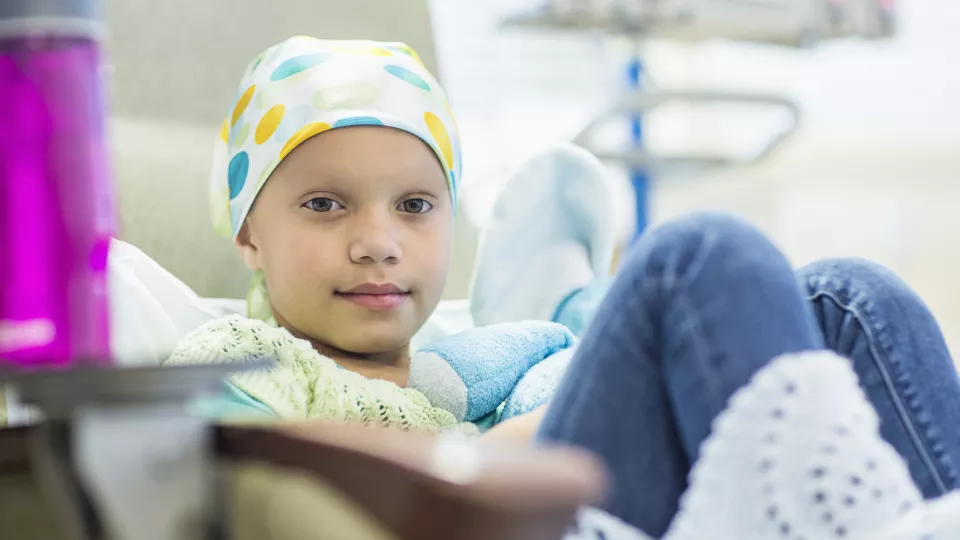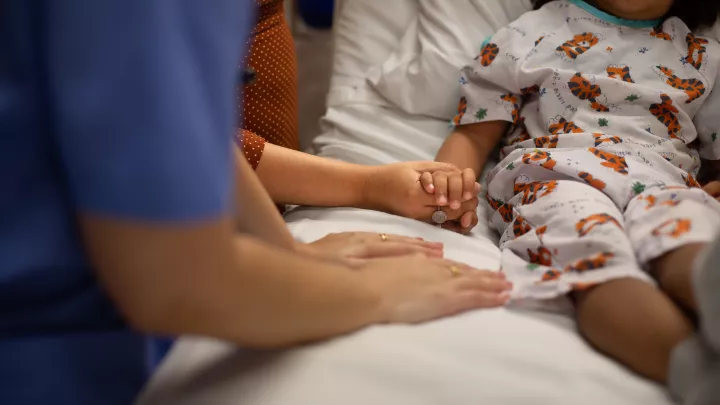
Study Targets Cisplatin Resistance in Pediatric Germ Cell Tumors
Germ cell tumors have been treated with cisplatin-based chemotherapy since the 1970s. While approximately 80% of patients respond well to cisplatin, the remaining 20% do not.
For those patients, treatment options are limited, and when the cancer returns after second- and third-line treatments, cancer-related mortality is over 90%. Meanwhile, no new treatment options have been introduced in the past 35 years.

Rachana Shah, MD, MS, Interim Director of the Solid Tumor Program in the Cancer and Blood Disease Institute at Children’s Hospital Los Angeles, is hoping to change this picture. An international expert in pediatric germ cell tumors—which most commonly affect the testes or ovaries—she is collaborating with colleagues from the Children’s Oncology Group and the Malignant Germ Cell International Consortium to lead the development of new treatment approaches.
Recently, Dr. Shah and her colleagues received a three-year, $1 million grant from the U.S. Department of Defense to support their studies. Specifically, the team is exploring whether a novel hypomethylating agent can reverse cisplatin resistance in children, adolescents and young adults with relapsed germ cell tumors. The team has proposed a phase 1/2 clinical trial to the Children’s Oncology Group.
Dr. Shah—the study’s Chair and Vice Chair of the Children’s Oncology Group Germ Cell Tumor Committee—shares what the team is investigating and what it could mean for other cisplatin-resistant cancers.
How did this research come about?
In a small trial in adult patients a few years ago, combining a novel hypomethylating agent called guadecitabine with cisplatin showed some promise in patients with cisplatin-resistant germ cell tumors.
That agent is no longer manufactured, but in 2020, the Food and Drug Administration approved a different hypomethylating agent for two blood cancers in adult patients. Our group is very excited to study this new drug and see if it could help restore cisplatin sensitivity.
Why is methylation a promising pathway?
About a decade ago, researchers from our consortium were the first to find that epigenetic changes may be linked to cisplatin resistance in germ cell tumors. That preclinical work demonstrated that germ cell tumors resistant to cisplatin have an excess of a particular modification of the tumor DNA, called methylation, that affects which genes are turned on and off.
Why will biomarkers be a key part of your study?
One of the important objectives of this study is to better understand the tumor microenvironment and DNA methylation. We will then look at biomarkers of methylation and see whether they correlate with clinical outcomes—from both a response and toxicity standpoint. We plan to evaluate circulating tumor DNA and small RNA molecules known as “microRNAs” and correlate them with tumor markers in blood samples.
The goal is to identify biomarkers that could help us predict which patients will benefit from adding a hypomethylating agent to their treatment. We don’t want to have to wait until a relapse occurs. Can we intensify therapy upfront to improve a patient’s sensitivity to cisplatin at the time of diagnosis? That’s the goal.
What is most exciting to you about this potential trial?
First, we now have a drug we can study that is already FDA-approved for a different indication, which provides longevity of its availability. We also are going to be able to better study the tumor microenvironment, which is critical for developing novel treatment targets to improve the chance of cure, cause fewer side effects, and improve the health and well-being of cancer survivors.
It is also important to develop biomarkers that can help identify those patients most likely to benefit from new drugs, so those unlikely to respond can be spared the treatment and its side effects.
And while there’s a critical need for new approaches for young people with relapsed germ cell tumors, these are not the only tumors treated with cisplatin. This is a very common chemotherapy used in both adult and childhood cancers. If our approach is successful, it could be studied in other tumor types. We have a much broader potential to impact patients’ lives.


